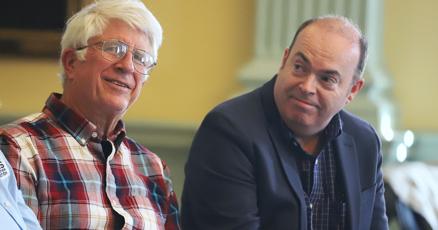Runway Revolt: Local Activists Demand Governor Halt Controversial Airfield Expansion

In a bold move that signals the Healey administration's commitment to environmental scrutiny, state officials last year declined to approve a draft environmental impact report for an expansion project at New England's largest private jet airfield. Environmental activists are now calling on Governor Healey to take decisive action and leverage her executive authority to address the proposed development.
The rejection of the expansion plans highlights the administration's careful approach to balancing economic development with environmental preservation. Activists are pushing for continued oversight and are urging the governor to use her influence to ensure that any future proposals meet rigorous environmental standards.
This standoff underscores the ongoing tension between infrastructure growth and environmental protection, with stakeholders closely watching the administration's next steps in this high-stakes environmental review process.
